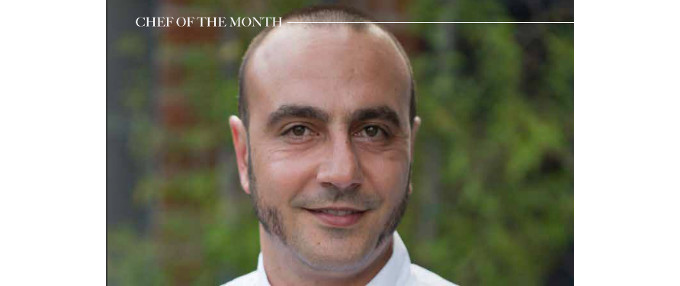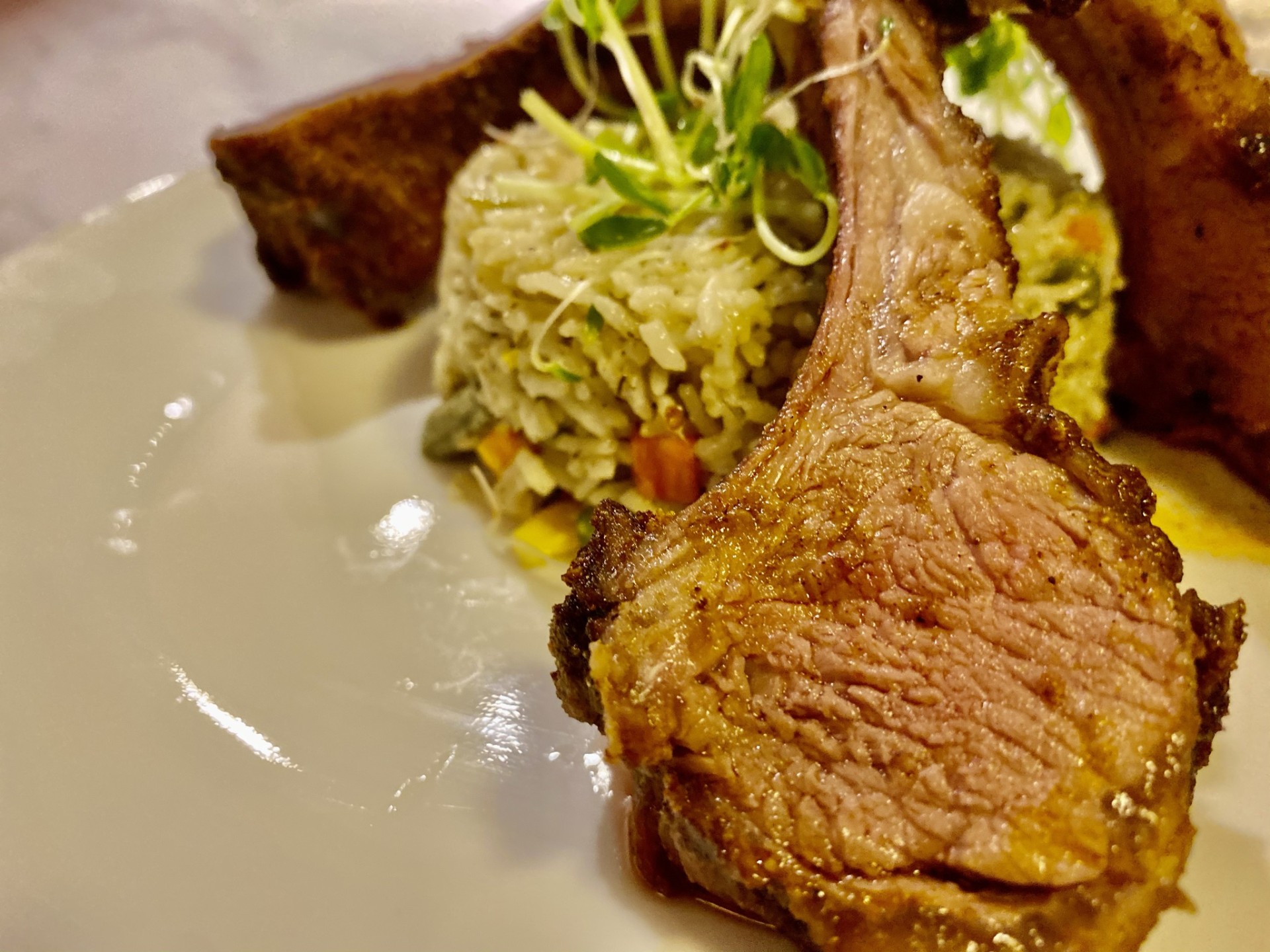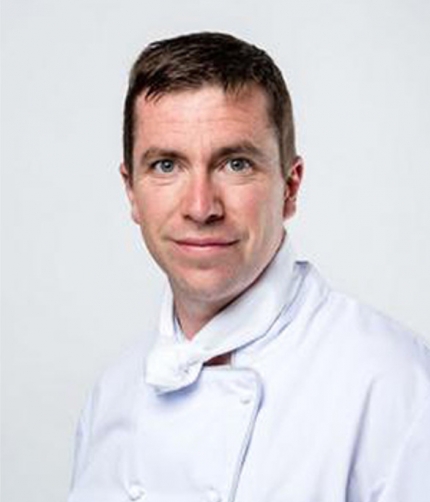
With more and more of us taking a closer look at how we consume, our eating habits have never been more relevant. Whether for environmental reasons, ethics, or personal health, there has been a massive surge of people switching to vegetarian and vegan diets over the last ten years. A 2017 study found that 14% of the Swiss population eat vegetarian or vegan diets (11% vegetarian, 3% vegan), while 17% call themselves flexitarians. Approximately one-third of the population is therefore consciously following a meat-free or a low-meat diet.
Revolutionizing Vegetarian Cuisine
When I first started cooking professionally 18 years ago, as far as many of us were concerned, eating habits were just a superficial trait… you were vegetarian, maybe vegan, or you just ate meat like everyone else. Someone whose ideology influenced their eating habits was seen as extreme and frankly, most of us weren’t interested in hearing what that ideology was. Like most Chefs who have worked in high-stress Michelin kitchens, I never held vegetarianism in any high regard. I wanted to slow cook melting chunks of meat, chargrill marbled steaks to perfection, make rich and intense jus from the bones and everything in-between.
When I became Head Chef of the Verbier Lodge, I had to deal with suppliers face to face, and this was when I began to see the pressure that the meat industry is subject to. In many cases, profit and productivity are placed at a much higher value than animal welfare and sustainable farming practices.
I started to understand that the meat industry is exactly that – an industry. Many of us have come to believe that meat is a commodity, and we should be able to have it whenever we want. Because of this mentality, we’ve lost a certain connection to the food we eat.
I know there are a great many livestock farmers, butchers, and restaurants that care immensely about animal welfare and are very committed to delivering sustainable, ethical products. But I think even they would agree that overall, this is not the driving force of the market.
It’s no secret that the livestock industry is responsible for 14.5% of our total greenhouse gas emissions. But as a Chef, what are you meant to do? I used to use my profession to justify my diet choices, but if I’m honest with myself I think there was a certain amount of willful ignorance involved. The more informed I have become about the meat industry, the harder it is to ignore its negative and harmful impact.
So I’ll ask the question again: as a Chef, what are you meant to do?
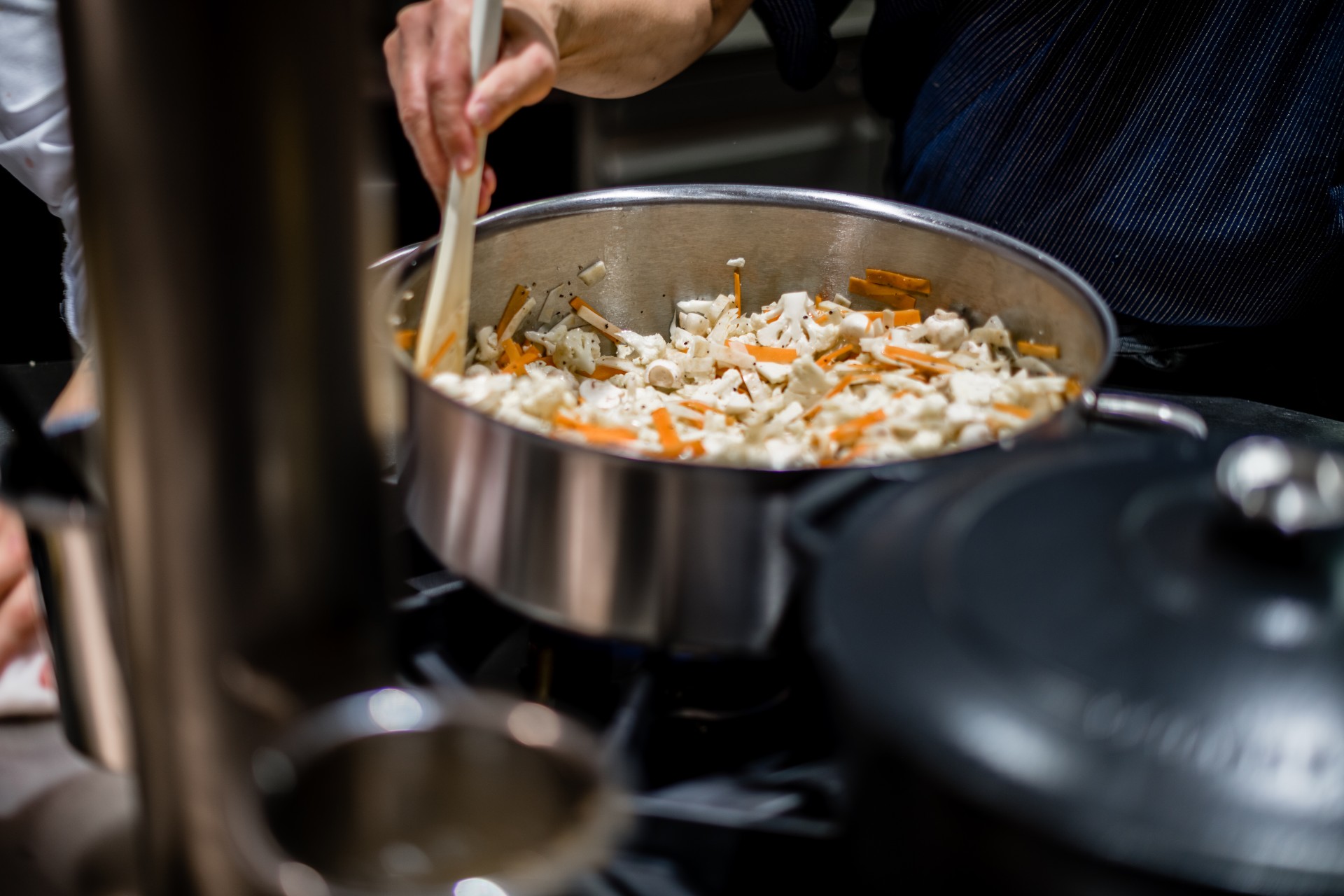
Don’t just take the meat out!
When the opportunity arose to work on a brand-new vegetarian program at Culinary Arts Academy Switzerland, I jumped at the chance. For the past few years, I’ve identified as a flexitarian, meaning I generally follow a plant-based diet. I will not order meat, choose it on a menu, or buy it for my home, but if I go to someone’s house for dinner and they have prepared meat, then I won’t be going hungry!
I remember hearing the word “flexitarian” for the first time and finding it ridiculous, but it means you are thinking about the ways you consume and the choices you make as a consumer. I don’t believe anyone can tell you how you should or shouldn’t eat as it is a very complex issue, but the more informed we are, the better we can reflect and have honest discussions.
A frequent complaint when it comes to vegan and vegetarian gastronomy is that chefs will often simply remove the meat from a dish and call it “the vegetarian option.” This is a perfectly valid complaint – part of being a Chef is being creative with food and searching for new ways of transforming an ingredient. Vegetarian and vegan cooking shouldn’t consist of traditional meals with the animal products removed – half the time, that will leave us with a plate of lettuce. Instead, vegan and vegetarian cuisine should be seen as a blank canvas on which chefs can create something new and interesting by drawing on all their experiences and understanding of products.
A lot of our favorite foods are born from the creativity of cultures and communities whose aim is to make the most of whatever ingredients they have on hand and in abundance. The examples of this kind of innovation are endless: when wine was clarified using egg whites, the Bordeaux Canelé was created to avoid wasting the yolks. The French soup Bouillabaisse was initially made from damaged fish that fisherman’s wives knew couldn’t be sold. During the war in the UK we would add herbs and breadcrumbs to sausages to stretch the quantity – now this recipe is a proud regional specialty.
These examples go to show that an abundance of fresh or imported ingredients doesn’t always lead to the best dishes- it’s often when faced with a challenge that the best dishes and ideas are born. Removing ingredients from our diet is not restrictive, it merely demands you to be innovative.
Read Also: dLeña’s Month-Long Día de los Muertos Celebration – F & B
With the growing popularity of vegan, vegetarian, and flexitarian diets, the world is moving toward a higher consumption of plants. Taking this direction with our diet seems to be a sustainable choice for the future and is an exciting opportunity for the culinary industry to adapt to new trends.
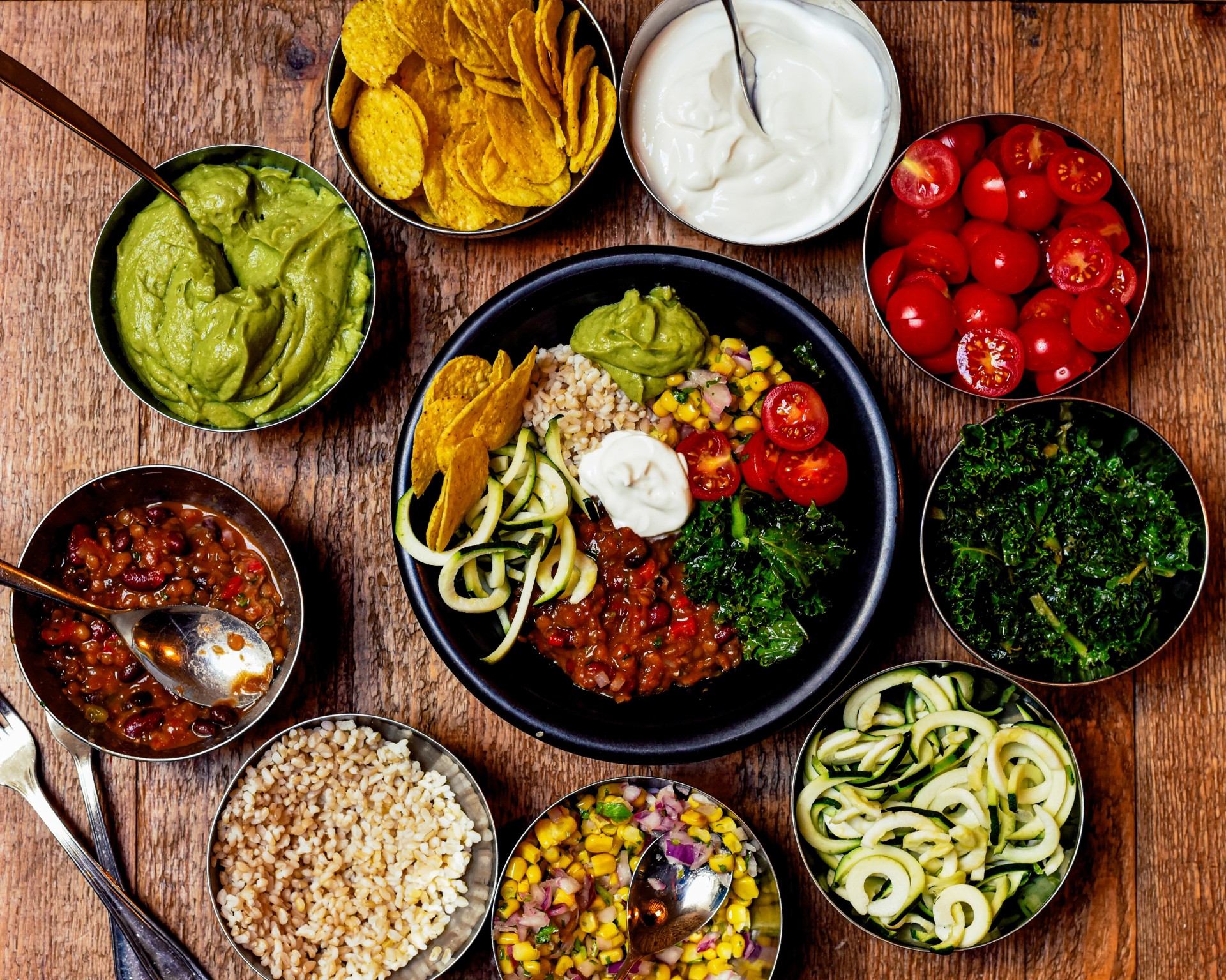
Chef Darren Burke trained in an Italian gastronomic restaurant in the UK and went on to become Head Pastry Chef at a Michelin-starred restaurant in the North of England. He has worked for Sir Richard Branson in Morocco and Switzerland. Most recently, he held the position of Chef-Owner of Restaurant Le Bois Sauvage, a restaurant focused on sustainable dining and local produce. Since 2019, he has been sharing his expertise with the students at Culinary Arts Academy Switzerland, where he is Chef Instructor.




